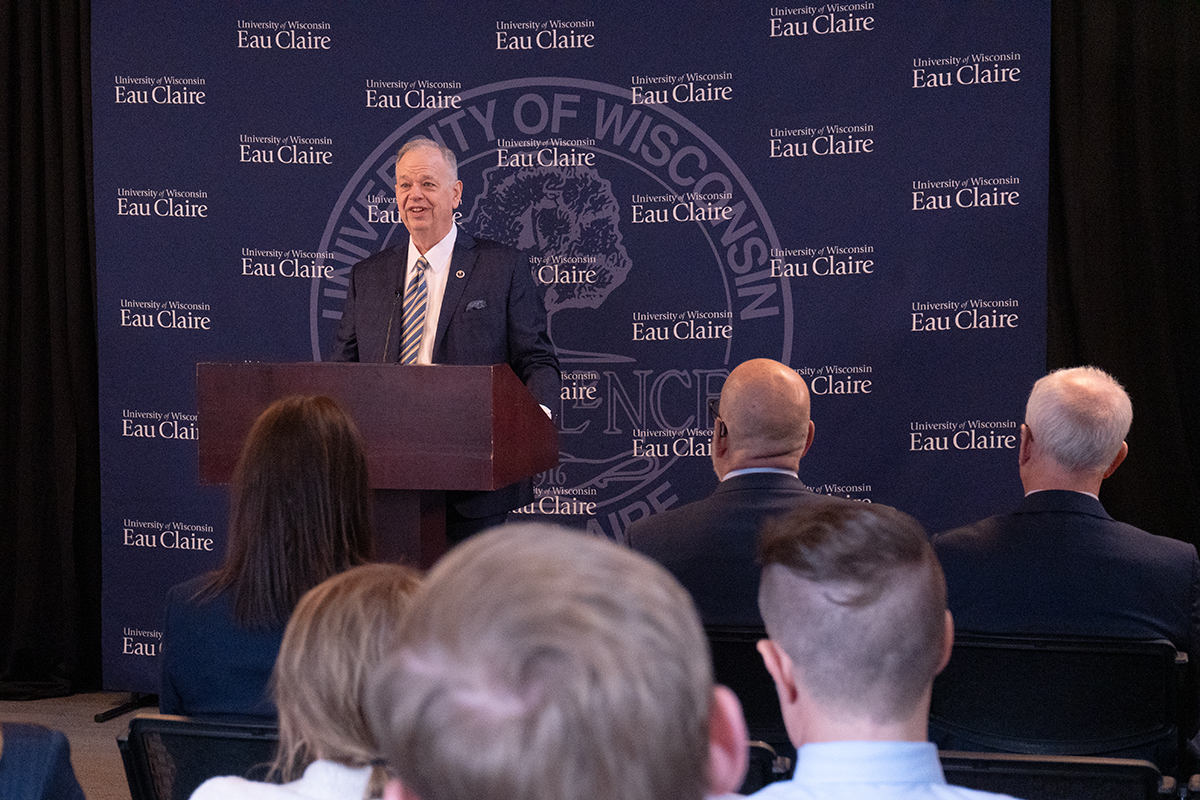Who said it’s not easy being green? For some freshmen and transfer students living in the residence halls this year, doing that can be as simple as turning on the lights.
The UW-Eau Claire Housing and Residence Life Office handed out nearly 2,000 compact fluorescent light bulbs to first-year residents this fall during move-in. The decision was part of a campaign to distribute thousands of energy-saving bulbs to college students across the state.
Focus on Energy, an organization working to improve energy efficiency in Wisconsin, proposed the idea to the UW System in January 2008, according to an e-mail sent by Amanda Wollin, marketing manager for the organization. The System approved the plan a month later.
The 13 participating System schools are getting the bulbs free this year, thanks to a deal with South Carolina-based AM Conservation Group Inc. The company won a bid to supply the System with nearly 21,000 bulbs this year at $1.55 apiece – low enough for Focus on Energy to cover the project’s costs entirely.
“(The program) basically was a win-win situation for the state,” Housing and Residence Life Director Chuck Major said.
One of the program’s goals is to cut energy expenses at colleges in Wisconsin, according to a Focus on Energy press release. Major said Eau Claire will have to wait until later to see just how much money the new bulbs save the university, but added any savings will likely be small.
The program is expected to “make a substantial difference” in energy use among the 13 System campuses, though, said Greg Wanek, senior electrical engineer for the UW System Administration’s capital planning and budget department.
But cutting costs is only half the picture; Wanek and Focus on Energy both hope the program will leave a personal impression on students as well.
“We’re hoping that students get more of a hands-on feel in terms of conservation,” Wanek said. “If we can get products out into the students’ hands,” he added, “and they use them and they carry the energy-saving concepts . into their later careers, I think it’s great.”
Major said the new bulbs, which were distributed only among first-year residents, won’t replace the existing fluorescent bulbs already in the residence hall rooms. Instead, the new bulbs are to be used in smaller desk lamps that students may have brought from home.
Most students interviewed said they weren’t using the bulbs, often explaining they either had their own bulbs already or hadn’t brought a lamp. Students were typically supportive of the decision to distribute the bulbs, though, saying they thought it was a good idea and could help the environment.
“I guess I think it’s a good idea,” said freshman Nick Bartlett, who is using his bulb. “As I understand it, it saves energy and it lasts longer, so I appreciate that.”
Major said he has received positive comments about the bulbs from students, but added it is impossible to tell how many are using them. He said a future housing survey will attempt to gauge the popularity of the program.







